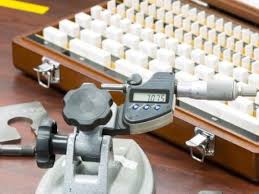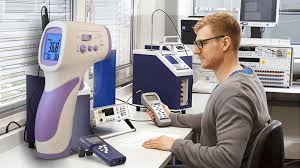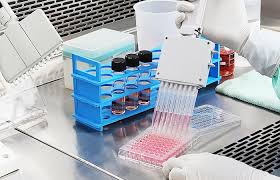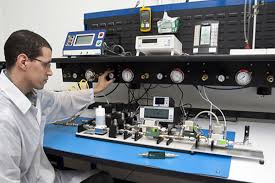Ensuring Accuracy: Metrology Calibration Services for Precision Measurements
Metrology calibration services play a crucial role in ensuring the accuracy of precision measurements. This specialized service involves the calibration of instruments and equipment used for measuring various physical quantities, such as length, mass, and temperature. By adhering to strict standards and procedures, metrology calibration services help to maintain the reliability and accuracy of measurement devices, ultimately contributing to the quality and consistency of scientific and industrial processes. In this article, we will explore the importance of metrology calibration services for precision measurements and their role in ensuring accurate and reliable results.
Metrology calibration services are essential for ensuring the accuracy of precision measurements in various industries such as manufacturing, aerospace, automotive, and healthcare. These services involve the calibration of measuring instruments and equipment to traceable standards, ensuring that they provide accurate and reliable measurements. This helps to maintain the quality and consistency of products, processes, and services, and also to comply with relevant industry regulations and standards. Additionally, regular calibration can extend the lifespan of equipment and reduce the risk of errors and inaccuracies in measurements. Overall, metrology calibration services play a critical role in maintaining precision and accuracy in various applications.
The Importance of Accurate Metrology Calibration Services

Accurate metrology calibration services are crucial for ensuring the reliability and accuracy of measurement instruments. These services help to ensure that measurement instruments such as scales, thermometers, pressure gauges, and other devices produce accurate and consistent results. Accurate metrology calibration is essential in a wide range of industries, including manufacturing, healthcare, laboratory research, and more. Without proper calibration, measurements can be inaccurate, leading to potential safety hazards, product defects, or improper diagnosis and treatment in healthcare settings. Therefore, it is important to invest in reliable metrology calibration services to uphold the integrity of measurements and maintain quality and safety standards in various industries.
Understanding the Process of Metrology Calibration Services
caliper calibration services

Understanding the process of metrology calibration services involves recognizing the importance of accurately measuring and verifying the precision and accuracy of various equipment and instruments. This process typically includes thorough testing, adjustments, and documentation to ensure that the equipment is operating within specified tolerances and standards. Calibration services are essential for ensuring the reliability and validity of measurements in various industries, including manufacturing, healthcare, and research. They help to maintain the quality and consistency of products, as well as compliance with regulatory requirements. Additionally, calibration services contribute to the overall efficiency and performance of the equipment, ultimately supporting the safety and satisfaction of end-users.
Maximizing Efficiency with Metrology Calibration Services

Metrology calibration services help companies maximize efficiency by ensuring that their measurement equipment is accurate and reliable. By regularly calibrating their equipment, companies can minimize downtime and reduce the risk of production errors. This ultimately leads to higher quality products, improved customer satisfaction, and cost savings. Additionally, metrology calibration services can help companies comply with industry regulations and standards, giving them a competitive edge in the marketplace. Overall, investing in metrology calibration services is a proactive way for companies to optimize their operations and achieve their production goals.
Ensuring Precision Through Metrology Calibration Services

Metrology calibration services are essential for ensuring the precision and accuracy of measuring instruments and equipment used in various industries. These services involve the comparison of reference standards and the adjustment of instruments to bring them into alignment with those standards. Calibration is necessary to maintain the quality and integrity of measurements, as well as to comply with industry regulations and standards. By ensuring the accuracy of measuring instruments, businesses can avoid costly errors and ensure the reliability of their products or services. Metrology calibration services also help to identify and rectify any deviations or inaccuracies in measuring equipment, ensuring that measurements are consistent and reliable. This is particularly crucial in industries such as manufacturing, healthcare, aerospace, and automotive, where precision and accuracy are paramount. Overall, metrology calibration services play a vital role in maintaining the quality and reliability of measurements, ultimately contributing to the overall success and efficiency of businesses across various sectors.
Key Considerations When Choosing Metrology Calibration Services

When choosing metrology calibration services, it is important to consider factors such as the accreditation and certifications of the calibration facility, the traceability of the standards and equipment used, the expertise and experience of the calibration technicians, the turnaround time for calibration services, the availability of on-site calibration services, the quality of the calibration reports and certificates provided, and the cost of the calibration services. Additionally, it is essential to ensure that the calibration services align with the specific requirements and standards of the industry and applications for which the metrology equipment is used.
The Impact of Metrology Calibration Services on Quality Control
Metrology calibration services play a crucial role in quality control by ensuring that measurement and testing equipment is accurate and reliable. Properly calibrated equipment allows for the consistent and accurate measurement of various parameters, which is essential for maintaining high quality standards in manufacturing and production processes. This, in turn, helps in minimizing the risk of non-conformities and defects in end products, ultimately leading to improved customer satisfaction. Additionally, regularly calibrated equipment also helps in meeting regulatory and industry compliance requirements, thereby avoiding costly fines and legal consequences. Overall, the impact of metrology calibration services on quality control is significant and indispensable for ensuring product quality and reliability.
The Role of Metrology Calibration Services in Industrial Applications
Metrology calibration services play a crucial role in industrial applications by ensuring that measurement instruments and devices are accurate and reliable. These services involve the use of high-precision equipment and standards to calibrate and validate the performance of various tools used in manufacturing, research, and development. In industrial settings, accurate measurements are essential for maintaining product quality, meeting regulatory requirements, and ensuring the safety of processes and products. By utilizing metrology calibration services, companies can minimize errors, improve production efficiency, and reduce the risk of costly rework or product recalls. Furthermore, metrology calibration services help businesses comply with industry standards and regulations, such as ISO 9001 and ISO/IEC 17025. These standards require companies to regularly calibrate their measurement equipment to demonstrate traceability to national or international standards, ensuring the reliability of their measurement results. Overall, metrology calibration services are integral to maintaining the quality and accuracy of measurements in industrial applications, ultimately contributing to the overall success and competitiveness of businesses in a wide range of industries.
Advancements in Technology for Metrology Calibration Services
Advancements in technology for metrology calibration services have led to increased accuracy, efficiency, and reliability in the calibration process. With the use of advanced software and hardware systems, metrology calibration services can now offer more precise measurement capabilities, reducing the margin of error in calibration procedures. Automation has also played a significant role in improving metrology calibration services, as it allows for a streamlined and standardized calibration process. This not only saves time, but also ensures consistent results across different calibration procedures. Additionally, the integration of cloud-based platforms and Internet of Things (IoT) technologies has facilitated remote monitoring and management of calibration equipment. This means that calibrations can be performed more seamlessly and with less human intervention, ultimately improving the overall quality of metrology calibration services. Overall, these technological advancements have contributed to the enhancement of metrology calibration services, making them more accurate, efficient, and reliable than ever before.
Maintaining Compliance with Metrology Calibration Services
Maintaining compliance with metrology calibration services is essential for ensuring the accuracy and reliability of measurement instruments and equipment. Proper calibration ensures that the equipment is performing within the specified tolerances and is crucial for meeting regulatory and quality standards. Regular calibration helps to minimize the risk of errors and inaccuracies in measurements, which can have serious implications in various industries such as manufacturing, healthcare, and aerospace. Metrology calibration services typically involve the comparison of a device's measurements against a known standard, adjustments as needed, and the issuance of a calibration certificate. It is important to schedule regular calibrations and keep comprehensive records to demonstrate compliance with industry standards and regulations. Additionally, working with accredited calibration service providers can help ensure that the calibrations are performed accurately and are traceable to national or international standards.
Benefits of Outsourcing Metrology Calibration Services
Outsourcing metrology calibration services can provide several benefits to companies. One of the main advantages is cost savings, as outsourcing these services can eliminate the need for investing in expensive equipment and hiring specialized staff. This can result in reduced overhead costs and increased profitability for the company. Additionally, outsourcing metrology calibration services can also lead to improved efficiency and accuracy. By working with a reputable and experienced calibration provider, companies can ensure that their measuring and testing equipment is calibrated to the highest standards, leading to more accurate and reliable results. Outsourcing metrology calibration services can also save time for companies, as they can rely on the expertise of the calibration provider to efficiently manage the calibration process, allowing the company to focus on its core operations. Furthermore, outsourcing metrology calibration services can also provide access to the latest technologies and best practices in calibration, ensuring that the company's equipment is always up to date and in compliance with industry standards and regulations. Overall, outsourcing metrology calibration services can result in cost savings, improved accuracy and efficiency, time savings, and access to the latest technologies, making it a valuable option for many companies.